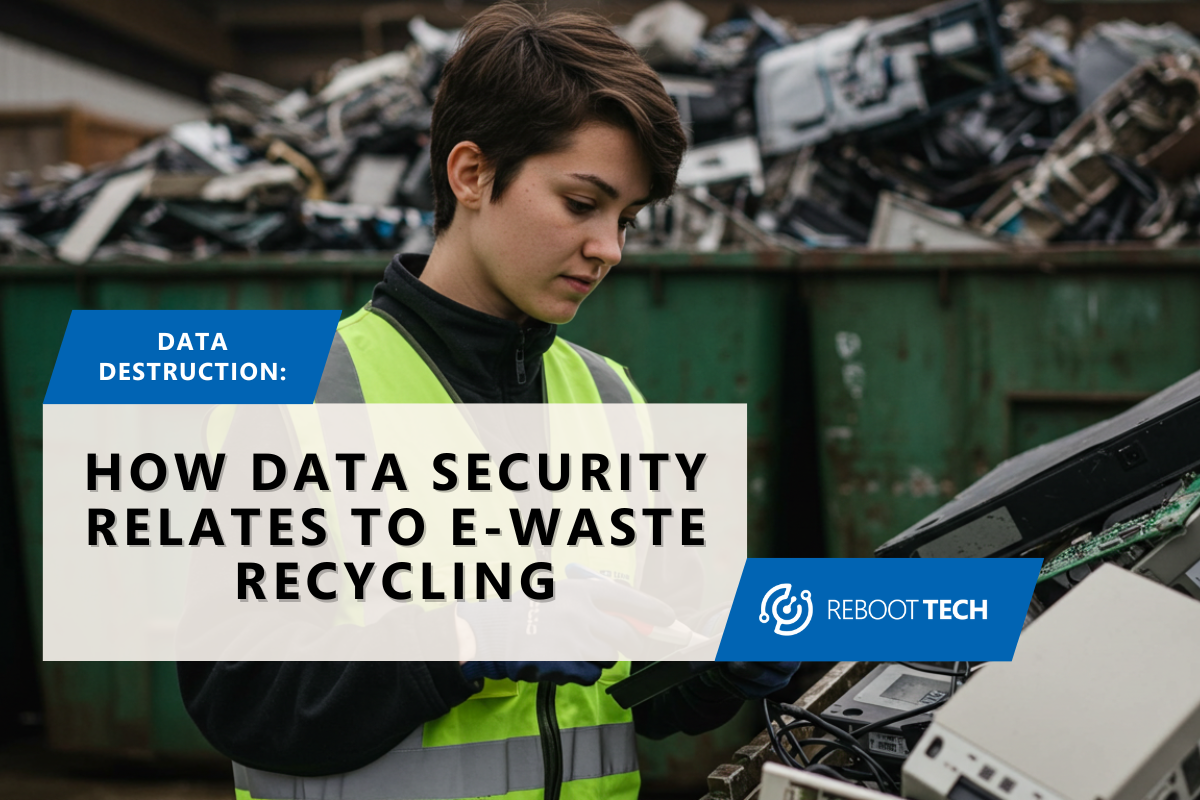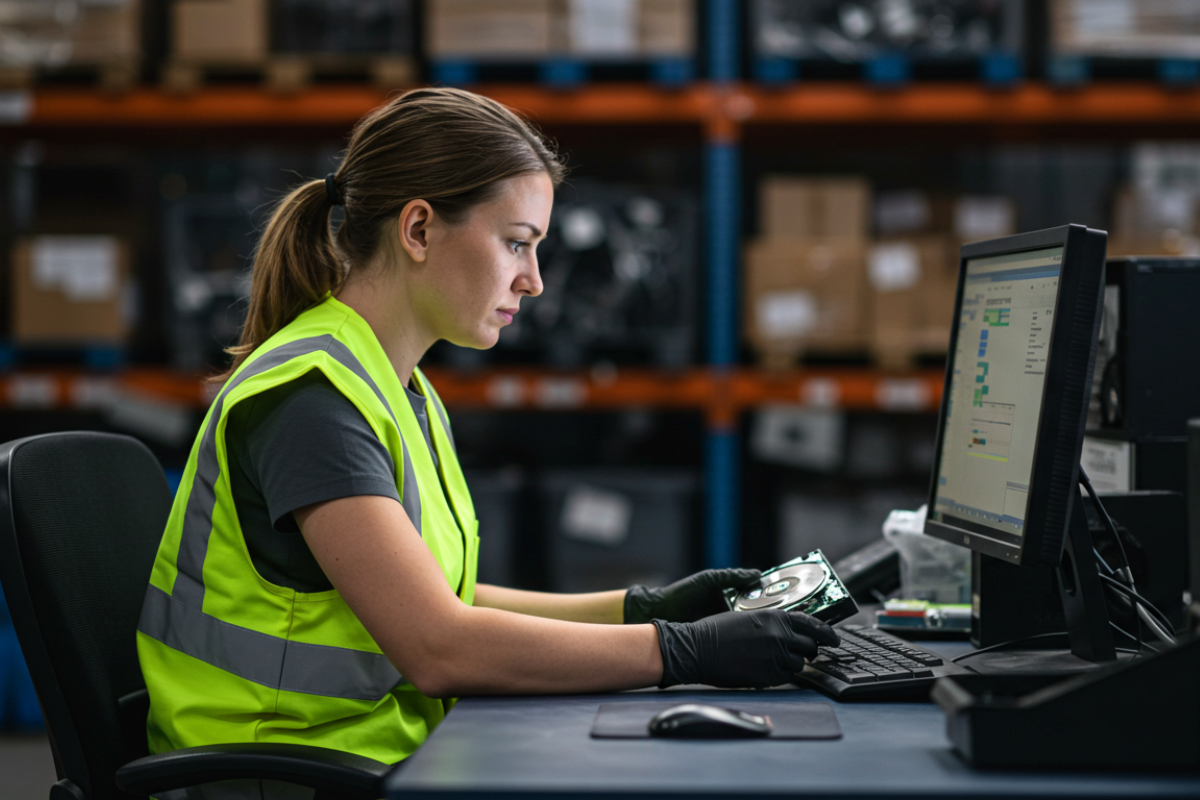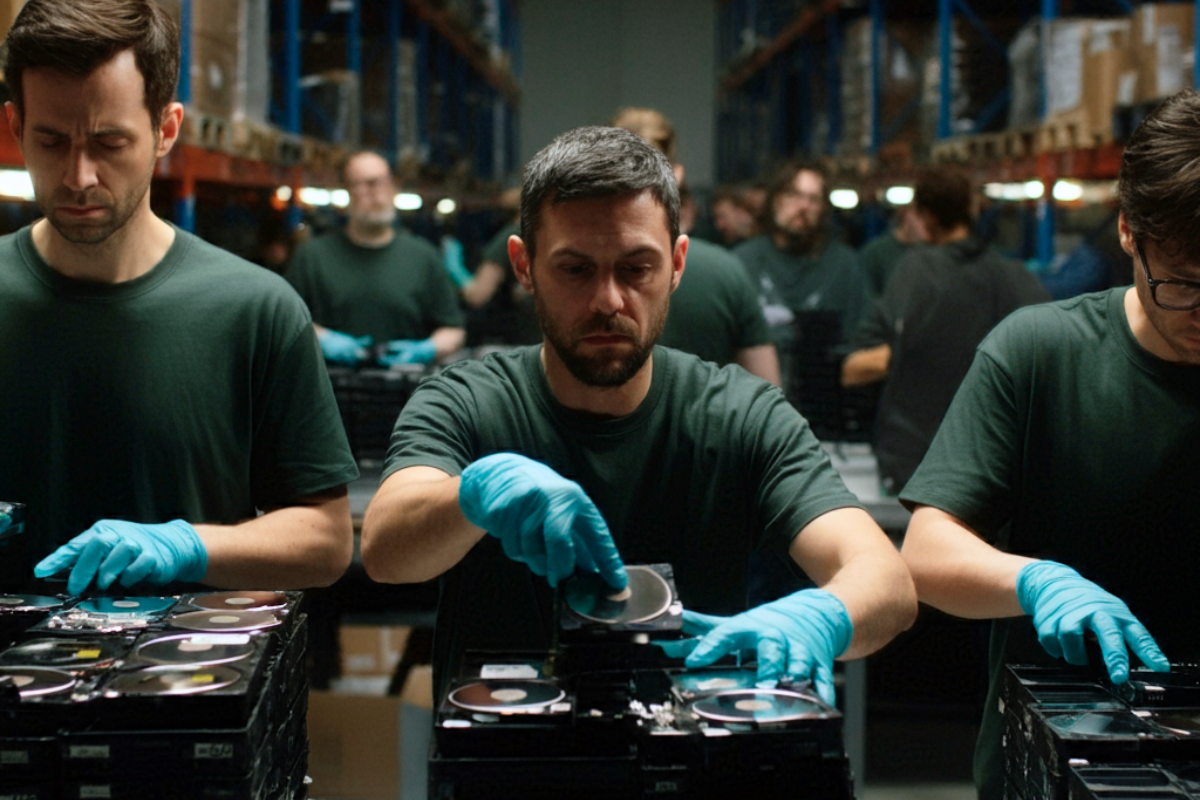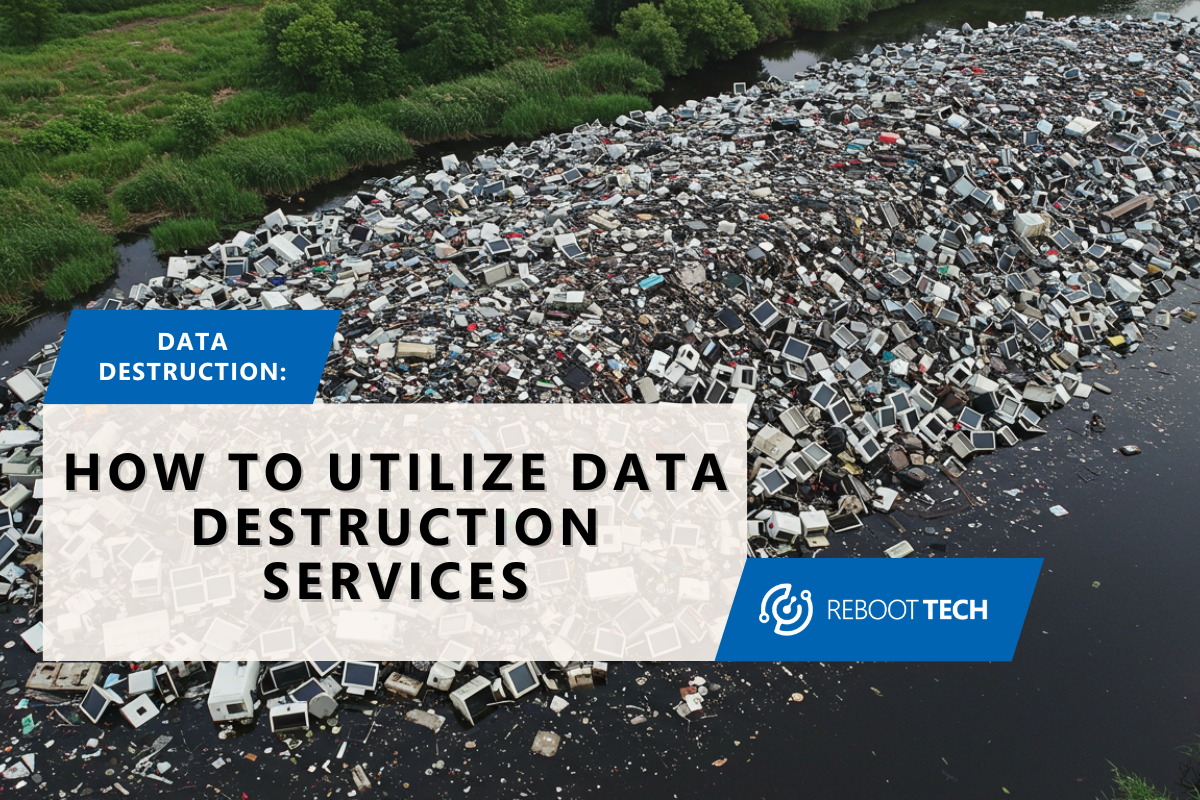
Why Data Security Matters in E-Waste Recycling
Imagine throwing away an old laptop, thinking it’s just junk. But what if someone picks it up and recovers your personal files, banking details, or work documents? Even if a device looks broken or outdated, it can still store sensitive information. Without proper data security, your discarded electronics could become a goldmine for hackers.
E-waste recycling isn’t just about helping the environment—it’s also about keeping your data safe. Many people don’t realize that hard drives, servers, smartphones, and other electronics keep data even after files are deleted. If these devices are not properly wiped or destroyed, they can expose private information. This could lead to identity theft, financial fraud, or serious legal trouble for businesses.
In this article, we’ll explain how data security connects to e-waste recycling. You will learn why old electronics still hold sensitive information. You will also see why secure recycling matters for businesses and individuals.
Finally, you will find out how to choose a trustworthy IT asset disposition (ITAD) provider. By the end, you’ll know exactly how to protect your data while disposing of your old devices the right way.
Sensitive Information in E-Waste
When people think about data security, they usually worry about hacking, phishing, or malware. But old electronics can also be a big risk. Devices like computers, hard drives, tablets, and even printers store private information. Simply deleting files or doing a factory reset does not erase everything.
For businesses, this is even more dangerous. Old computers and hard drives may still contain customer data, employee records, and financial information. If these devices are not properly erased, someone could recover the data. This could lead to lawsuits, fines, and damage to a company’s reputation.
Individuals also face risks. Old phones often have saved passwords, banking details, and personal photos. If someone finds your old phone, they could log into your accounts or steal your identity. Even an old printer can store copies of scanned or printed documents.

This is why secure data destruction is so important when recycling electronics. Instead of throwing away devices, people should work with professionals who can wipe or destroy the data properly. Safe e-waste recycling protects both businesses and individuals from data theft.
The Importance of E-Waste Recycling
E-waste is growing faster than ever. Every year, millions of tons of old electronics are thrown away, often ending up in landfills. This harms the environment by releasing toxic materials like lead and mercury. It also creates a serious risk for data security. Many discarded devices still contain sensitive information, making them an easy target for cybercriminals.
For businesses, proper e-waste recycling is more than just a good practice—it’s a legal requirement. Rules like GDPR, HIPAA, and PCI DSS require companies to safely dispose of IT assets. This helps protect customer and employee data. Failing to do so can result in heavy fines and legal consequences. Secure IT asset disposal ensures that business data remains protected while also supporting environmentally responsible recycling.
Individuals also need to be cautious. Throwing away an old phone, tablet, or laptop without proper data destruction puts personal information at risk. Login credentials, banking details, and private messages can still be recovered from discarded devices. By choosing a certified e-waste recycling provider, you can make sure your data is erased for good. This reduces the risk of identity theft and helps the planet.
Data Security When Recycling E-Waste
Getting rid of old electronics isn’t as simple as dropping them off at a recycling center. If proper security measures aren’t taken, your personal or business data could still be accessible. Many people assume that deleting files or resetting a device removes all data, but that’s not true. With the right tools, data recovery experts—or hackers—can still retrieve sensitive information.

The most secure way to dispose of IT assets is through professional data destruction methods. These include:
- Data wiping – Specialized software erases data completely, making it impossible to recover.
- Degaussing – Powerful magnets scramble data on hard drives, making them unreadable.
- Shredding – Physically destroying storage devices ensures no data can be retrieved.
For businesses, it’s essential to have an IT asset disposal policy in place. This should include secure data destruction, proper documentation, and working with a trusted ITAD provider. Individuals can use data-wiping tools before recycling personal electronics, but for guaranteed security, professional e-waste recycling is the safest option. By taking these steps, both businesses and individuals can prevent data breaches while disposing of old devices responsibly.
How to Find an ITAD Provider
Choosing the right IT asset disposition (ITAD) provider is crucial for ensuring both data security and environmental responsibility. Not all e-waste recycling companies follow strict data destruction protocols, so it’s essential to vet potential providers carefully.
Here’s what to look for in a reliable ITAD provider:
- Certified data destruction methods – Ensure the company follows industry standards for secure data erasure and destruction.
- Chain of custody tracking – Look for providers that document and track IT assets from collection to final disposal.
- Environmental compliance – The provider should follow EPA regulations and promote responsible recycling practices.
- Secure logistics – Data-sensitive electronics should be transported securely to prevent loss or theft.
Working with a certified ITAD provider ensures that your sensitive data is fully protected and that your old devices are recycled in an environmentally responsible way.
Necessary Data Certifications
When selecting an ITAD provider, checking for industry certifications is key to ensuring proper data destruction. The following certifications indicate that a company follows strict security and environmental standards:
- NAID AAA Certification – Ensures secure data destruction through rigorous audits and compliance with industry best practices.
- e-Stewards Certification – Guarantees ethical recycling and protection against illegal e-waste exports.
- ISO 27001 Certification – Focuses on information security management, ensuring data protection protocols are in place.
A reputable ITAD provider will have one or more of these certifications, ensuring that they follow secure and environmentally responsible disposal practices.
Secure E-Waste Recycling with Reboot Tech
Data security and e-waste recycling go hand in hand. Whether you’re an individual looking to dispose of an old laptop or a business decommissioning hundreds of servers, ensuring that your data is properly destroyed is essential. Improper disposal can lead to data breaches, financial loss, and regulatory penalties.
At Reboot Tech, we specialize in IT asset disposition and secure e-waste recycling. Our certified data destruction services ensure that your sensitive information is permanently erased before your electronics are responsibly recycled. We offer secure logistics, certified destruction methods, and full chain-of-custody tracking to give you peace of mind.
Protect your data while protecting the planet. Contact Reboot Tech today to learn more about our secure e-waste recycling solutions.





